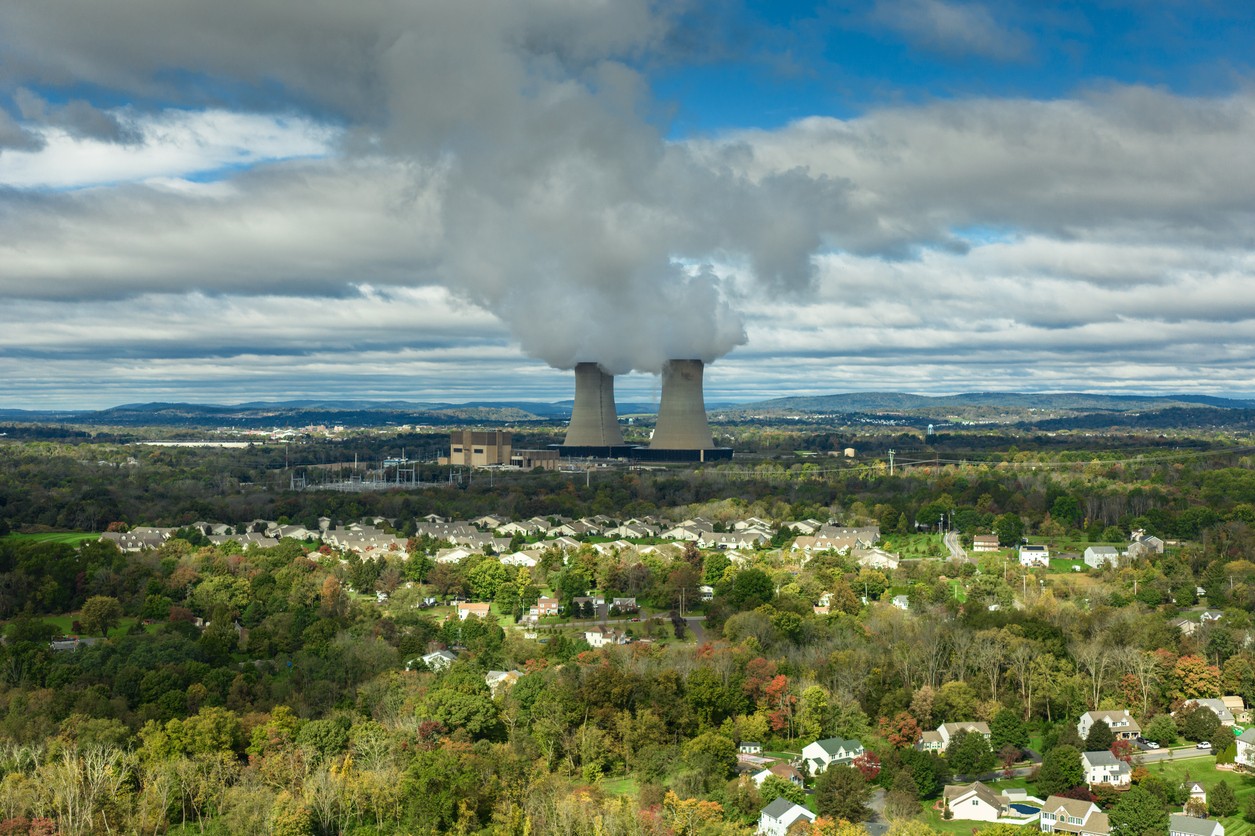
WVXU: Supreme Court temporarily blocks key air pollution regulations
Last week’s US Supreme Court decision, which temporarily blocked key air pollution regulations established by the Environmental Protection Agency (EPA), was just one in a line of recent rulings over the past two years significantly impacting the EPA’s authority to limit pollution in air and water. In last Thursday’s decision, the court ruled that the emissions-reductions standards set by the plan were likely to cause “irreparable harm” to almost half the states unless the court halted the rule pending further review by the U.S. Court of Appeals for the District of Columbia.
Cincinnati Law’s Professor Brad Mank spoke with WVXU about the impact of the most recent decision, stating that “The Ohio v. EPA decision will continue to worsen air quality, especially on the East Coast.
“In the short-term, this is a decision environmentalists won't like,” Mank said. “It's not good for the environment and it does show a kind of general trend that the current Supreme Court doesn't really like to give deference to agencies.”
About The Good Neighbor Plan
The EPA established the Good Neighbor Plan to ensure compliance with the 2015 Ozone National Ambient Air Quality Standards law. To carry out the law’s mandate, the EPA required “upwind” states to reduce air pollution affecting “downwind” states. Under the Good Neighbor rule, states are first given the chance to create a plan that complies with agency’s ozone guidelines. If a state fails to submit an adequate plan, the EPA then designs a compliance plan for the state. In February 2023, the EPA determined that 23 states had not provided sufficient plans and the agency then decided to implement its own emissions-control program for those states.
Ohio, along with several other states, large industrial companies, and trade associations, challenged the EPA plan in court. They contended that the agency’s “dictatorial approach” failed to adequately consider the legal and practical implications of substituting its own plan for the state plans. The opponents also argued that the plan’s implementation would cause significant economic and operational harm, particularly by forcing states to undertake costly modifications to their power plants while judicial review is pending in the U.S. Court of Appeals for the District of Columbia.
Read more about the decision, its impact, and Professor Mank’s commentary in the story “Supreme Court temporarily blocks key air pollution regulations".
Lead photo: istockphoto.com
Related Stories
UC’s Ohio Innocence Project helps earn freedom for Cleveland man after more than 14 years in prison
May 4, 2021
UC's Ohio Innocence Project helped earn the freedom of Michael Sutton, one of two Cleveland men convicted in 2006 of the shooting of two people and the attempted shooting of a Cleveland police officer when both suspects were 17 years old.
Three Cincinnati Law faculty honored with University awards
April 16, 2021
Three University of Cincinnati College of Law faculty members are being honored with university awards.
2021 University Recognition Ceremony honors student achievements
April 13, 2021
The University of Cincinnati recognizes students each year who have made significant service, leadership, and academic contributions to the UC community. These students exemplify the spirit of what it means to be a Bearcat.
UC Day of Giving a success
April 28, 2021
University of Cincinnati Day of Giving’s 24-hour challenge was a tremendous success this year, raising $2,219,197 with 3,232 gifts. The fourth annual UC Day of Giving raised its most money to date with alumni, donors, students, faculty and staff joining together to support UC and UC Health.
Cincinnati task force calls on expertise of UC Law faculty, student
April 26, 2021
A. Christopher Bryant, the Rufus King Professor of Constitutional Law, and third-year law student Evan Gildenblatt presented to the Economic Development Reform Panel (EDRP) on topics related to the First Amendment in US election law and rebuilding public trust.
'To make him proud was high on her list'
April 1, 2021
Alex Lewis lost her 82-year-old grandfather to Covid-19 just five weeks before her dream school showed up on the front steps of Roger Bacon High School to tell the senior that she has been admitted to the University of Cincinnati College of Nursing as part of a touching Decision Day surprise effort this year.
Cincinnati Law welcomes the world
May 17, 2019
The University of Cincinnati College of Law has fewer than 400 students, but some travel thousands of miles around the globe to enroll.
U.S. News top grad school rankings include several UC programs
March 30, 2021
Several graduate school programs at UC improve in latest U.S. News and World Report rankings, including from nursing, medicine, engineering, criminal justice, law and business.
UC Law Clinic prevails in Sixth Circuit
March 23, 2021
In January, as most students were returning for the Spring Semester, third-year students Trane “T.J.” Robinson and Katia Basalla were making what would turn out to be a successful oral argument before the U.S. Court of Appeals for the Sixth Circuit.
UC remembers corporate leader Charles A. Corry
March 31, 2021
The University of Cincinnati and the College of Law community are remembering attorney Charles A. “Chuck” Corry, A&S ‘55, Law, ’59, a well-respected steel and energy executive who led USX Corporation.
